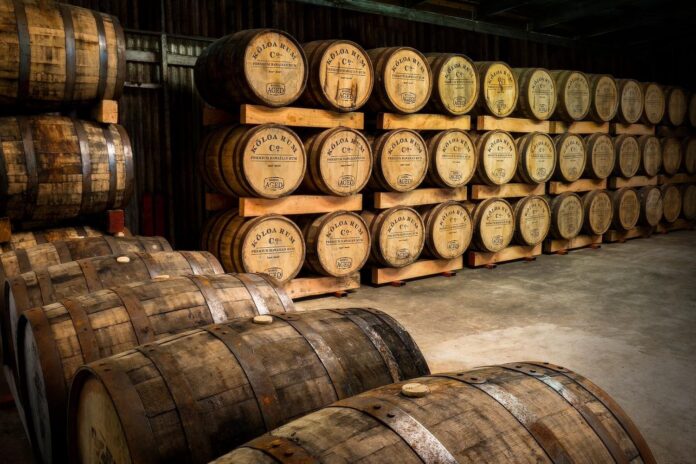Illustrative Image: How Blasty Bough Brewing Uses Solar and Geothermal Energy to Brew Sustainable Beer
Image Source & Credit: Triple Pundit
Ownership and Usage Policy
On a scenic farm in New Hampshire, where rolling fields meet red barns and sheep graze beneath rows of gleaming solar panels, Blasty Bough Brewing Company is redefining how beer is brewed — not just for taste, but for the planet. With the help of 182 solar panels and a geothermal energy system, this small craft brewery is turning one of the world’s oldest beverages into a modern-day symbol of environmental innovation.
Welcome to 3p Happy Hour, where we spotlight forward-thinking beer, wine, and spirits brands that blend sustainability with craftsmanship — offering a refreshing alternative to business as usual.
Brewing a Better Future
Beer has long been associated with moments of relaxation — from summer barbecues to Friday night celebrations. Yet behind the cheerful clinking of glasses lies a process that’s traditionally resource-heavy. Brewing beer consumes a significant amount of energy, especially during critical stages like boiling the wort — the sweet, malty liquid that becomes beer — and later, in refrigeration and packaging. According to researchers, production alone accounts for roughly 26% of a beer’s greenhouse gas emissions.
Recognizing this environmental footprint, Blasty Bough Brewing Company set out to make changes — big ones.
The brewery partnered with ReVision Energy, a New Hampshire-based, employee-owned solar company, to install a robust solar array. These 182 panels now generate approximately 117,000 kilowatt-hours of electricity annually, enough to not only power the entire brewing operation but also fuel events like live music shows. That’s more than the brewery actually needs, producing an excess of 8,000 to 10,000 kWh each month — enough to run the average American home for a year.
Solar-Powered and Sheep-Approved
Beyond reducing utility costs, the solar array is cutting emissions significantly. Blasty Bough estimates it avoids about 69 tonnes of carbon dioxide emissions annually — the environmental equivalent of taking 15 gasoline-powered cars off the road each year. And there’s more: in a clever bit of agrivoltaic synergy, local sheep graze the grass beneath the panels, naturally maintaining the grounds and adding a layer of biodiversity to the installation.
To help fund the project, Blasty Bough secured support from the USDA’s Rural Energy for America Program (REAP), which covered about a third of the installation costs. Although the program’s funding was frozen under the Trump administration — disrupting planned support for many rural energy projects — owner David Stewart was fortunate to have already received the grant. He financed the remainder himself, calling it an “investment, not a stranded cost”.
The return has been tangible. Before going solar, the brewery’s monthly electricity bills ranged from $700 to $1,500. Today, with the sun powering its operations, those expenses have essentially disappeared — saving the business approximately $23,000 per year.
Deep Roots, Cool Brews: Geothermal Innovation
In addition to solar, Blasty Bough has adopted geothermal energy to further reduce its reliance on traditional utilities. Brewing beer typically requires rapid cooling of wort — a process usually achieved using refrigeration, which consumes both electricity and water. Instead, Blasty Bough uses the Earth’s stable underground temperature to cool the wort, reducing energy demand and conserving water.
This integration of geothermal cooling is part of a growing movement to design closed-loop, regenerative systems in the craft beverage industry — a nod to both ancient traditions and cutting-edge innovation.
Brewing Waste, Repurposed Gracefully
Beer brewing inevitably creates waste: spent grain, excess water, leftover yeast and hops. But Blasty Bough sees waste not as a burden but as a resource.
The brewery donates its spent grain — rich in protein and fiber — to local farmers as livestock feed. As for wastewater, instead of costly treatment or disposal, it’s used to irrigate the farm’s fields or added to compost piles, enriching the soil.
What’s more, many of the ingredients used in Blasty Bough’s beers — from apples to dandelions to chamomile — are grown right on the farm. This not only reduces supply chain emissions but connects the brewing process directly to the land, reinforcing the brewery’s holistic approach to sustainability.
A Taste of What’s to Come
The American beer market is massive — valued at over $124 billion and projected to reach $147 billion by 2029, according to Statista. Within this competitive space, sustainability is becoming an increasingly important differentiator. Surveys show that consumers are willing to pay more for products with a lower environmental impact.
Yet, as Stewart points out, it’s not just about marketing.
“It’s like peeling an onion,” he explained. “People come for the beer. Then they discover it’s a cool destination. Then, when they peel back another layer, they realize how committed we are to doing things differently. Sustainability may not be the first reason they show up — but once they learn about it, they care.”
Cheers to a Greener Glass
Blasty Bough Brewing Company offers more than delicious IPAs and strong ales — it offers a model for what the future of brewing can look like: local, renewable, and responsible. From sunlit fermenters to geothermal-cooled wort, this is beer that not only quenches your thirst but also supports the planet.
So next time you crack open a cold one, consider what’s behind the brew. If it’s powered by the sun, cooled by the Earth, and brewed with purpose, you might just be tasting the future — one sustainable sip at a time.
















 The African Research (AR) Index is a comprehensive scholarly directory and database focused explicitly on journal publishers that publish and disseminate African research.
The African Research (AR) Index is a comprehensive scholarly directory and database focused explicitly on journal publishers that publish and disseminate African research.

